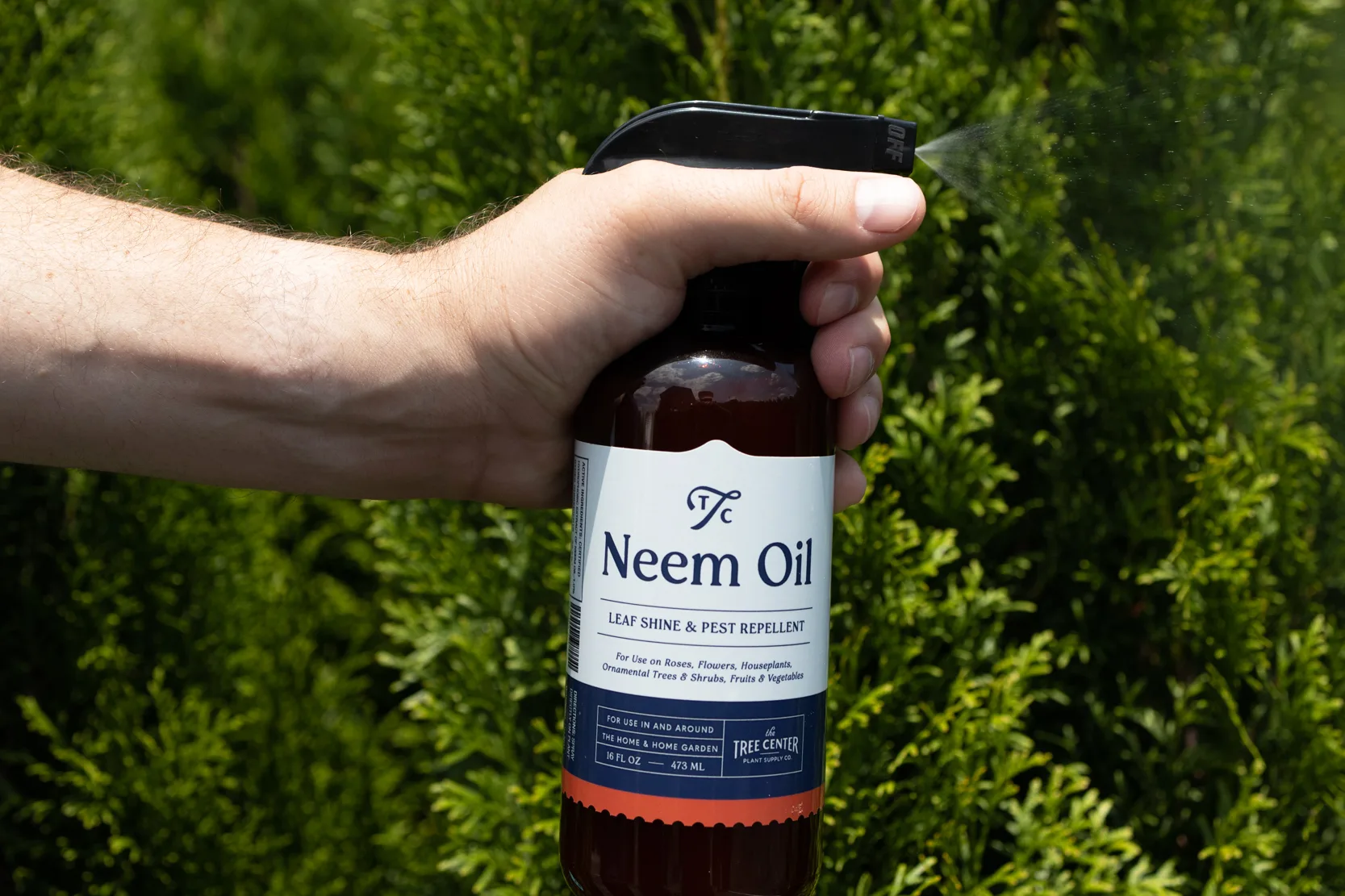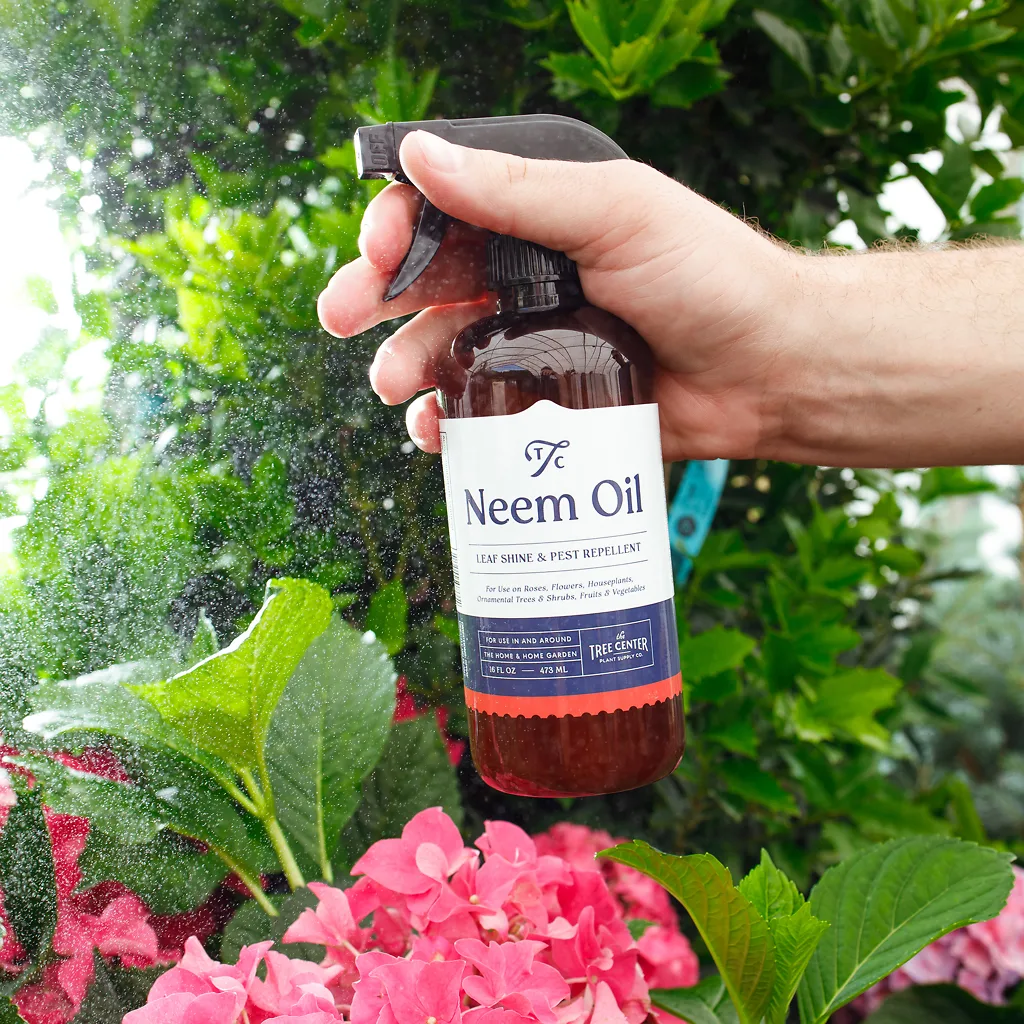
Written by s • Neem Oil will Kill Your Garden Pests
When you start growing plants – indoors or outdoors – it doesn’t take long before you see a few creepy-crawlies on them. That isn’t reason to panic, because most insects on plants are relatively harmless, and if you keep your plants happy with suitable light and correct soil conditions they usually thrive. But sometimes those pests get out of control and start to cause damage to our plants. It used to be that we then turned to some pretty nasty chemicals to try and bring things under control. Today it’s different. There are several simple and safe ways to control most pests that might attack your plants – and the most versatile and useful in a simple oil with an odd name – Neem.
How To Use Neem Oil

Let’s start by looking at the practical stuff – the fun details can come later. There are two ways to get Neem Oil to use on your plants. You can buy a bottle of the pure oil, and then dilute it. This tricky, because a you know, ‘oil and water don’t mix’. You need to blend the oil with some soap first, and then add the water. So unless you have a big garden, and lots of plants to spray, it makes much more sense to go with a ready-mixed spray. Just shake the bottle and pull the trigger – couldn’t be easier.
Some plants with delicate leaves can sometimes be damaged by too much neem spray, so you might want to spray an inconspicuous leaf or two for a trial – wait a day or two to see what happens. Usually, though, you can go ahead and spray. The best time is in the evening, when the sun isn’t on your plants, as we suspect that spraying in sunlight can increase the damage. Plus, the active ingredients are broken down by light, so if it gets dark soon they will do they job longer. Spray both sides of the leaves until some drips off them, you need a thorough coating to get the job done.
It pays to keep a close eye on your plants (which is also a cool thing to do), so that you spot any insects before there are lots of them. Since Neem Oil spray is harmless, it is good to spray at the first sign of problems, because once pests are abundant the damage has already been done.
Is Neem Oil Safe?
Although not officially ‘approved’ by the FDA, they did do a 2-year study and found no harmful effects, so we don’t know of any bad results from using it on your plants. It doesn’t harm most pollinating insects who might visit your plants for pollen or nectar, including bees. This is because the insect has to eat it to be affected, and of course pollinators aren’t eating the leaves, right? You would of course wash any vegetables you had sprayed, but even if you don’t it seems they are safe to eat. The concentrate might irritate your skin, which is another reason to use a pre-mixed spray. So all round, Neem Oil is perfectly safe to use, for your, your family and the environment.
What is Neem Oil?
The Neem Tree, Azadirachta indica, which is also sometimes called Indian Lilac, is a drought-resistant tree that grows naturally in India. It is a tropical tree, growing in hot areas and killed by temperatures close to freezing. It grows as much as 100 feet tall, but it’s usually only half that size, with a full crown, and like other trees that grow in dry areas it is evergreen, but may drop its leaves during long dry periods. It has clusters of small, fragrant, white flowers. It has been grown in Indian since forever, mainly as a shade tree and its ability to resist drought has meant it has been introduced into the Gulf States for that purpose too. In northern Australia has become a weed tree, threating the unique ecosystems of that area.
What we are interested in is the oil that can be extracted from the seeds of the neem tree. This oil is extracted much the same way as that bottle of olive oil in your cupboard – by pressing the cold seeds and squeezing out the virgin oil. Oil extracted this way is the best quality, but good oil can also be produced by heating the seeds to about 120 degrees Fahrenheit, and that also counts as ‘cold pressed’, since it isn’t boiled. You can then extract more oil by using solvents (chemicals that will mix with oils), but that oil is much cheaper, and not very useful for pest control.
How Does Neem Oil Control Pests?
There are two ways that Neem Oil works to kill pests on your plants. We have known for a long time that oils sprayed on insects will kill them by smothering them, so they die from lack of oxygen. These ‘horticultural oils’ have been used for a long time, mainly for spraying fruit trees in winter to kill eggs and pests on the bark. Neem oil will do exactly the same thing, and it has the advantage of being natural, not made from petrochemicals.
In addition – and this is what makes Neem Oil so different and so special – virgin Neem Oil contains a group of natural pesticides. Don’t worry, ‘pesticide’ just means something that kills a pest, it doesn’t mean something we should automatically be afraid of.
Azadirachtin – the Magic in Neem
Too bad about the big word, but the key ingredient in Neem Oil is a chemical called Azadirachtin (for those who care about such things, it’s a triterpene of the limonoid group – yes, related to similar chemicals found in lemons and oranges). This chemical makes the plant taste nasty to most insects, who therefore don’t want to eat it anymore. As well it interferes with their development, so that larval stages don’t develop into adults properly, so it breaks the reproductive cycle of the insect. In other words, they don’t keep spreading and increasing, and they won’t eat your plants anymore. Which is great.
There is between 0.2 and 0.8% azadirachtin in neem oil, and it can be separately extracted and made into an insecticide. It affects at least 200 species of insects, including most of the ones that commonly attack our plants, like aphids, mealybugs, many caterpillars, and lots of other nasties. It is a safe, non-toxic chemical (although we strongly recommend that you don’t start drinking neem oil!), and it breaks down into benign chemicals in about 4 days, so it doesn’t stay around and perhaps hurt other ‘good’ insects.
But Natural Neem Oil is Better
You can go out and buy azadirachtin extract as a pest spray, but there are big advantages in using the natural oil. It contains many other anti-insect and anti-fungus chemicals, less well-studied, so the natural oil gives you them all, translating into better control of a wider range of pests.





